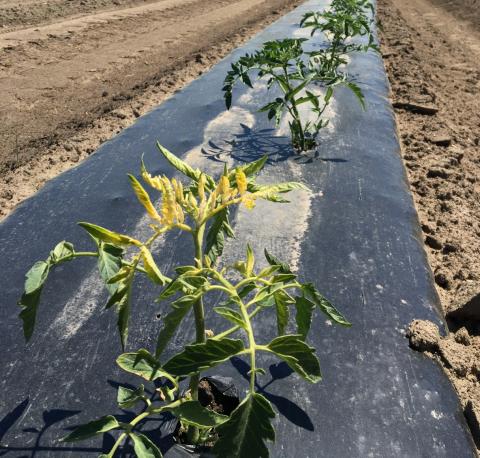Herbicide disappointments in dry weather

We've been getting many calls about problems with pre-emergent and other soil-applied herbicides and it sounds like this dry weather has a role to play. Click on these links to listen in to our conversation with Dr. Thierry Besançon (Rutgers University) about the role of rainfall and/or irrigation in getting soil-applied herbicides where they need to be, and keeping them away from where they shouldn't be. We discuss two scenarios where dry weather can cause problems:
Herbicide residue often finds its way onto plastic mulch during application to row middles. Unless rain or overhead irrigation washes this residue of the plastic, herbicide can be washed into the rootzone of newly planted transplants and cause some problems. The tomato plants in this photo grew through this damage but this is an alarming outcome, for sure!
Managing grass weed species in a grass crop, like sweet corn, can be challenging. So it's all about seedbank management and pre-emergent herbicides. For soil applied herbicides, rainfall and/or overhead irrigation is critical to getting that material below the soil surface, where the weed seeds are, before UV light degrades the material.

